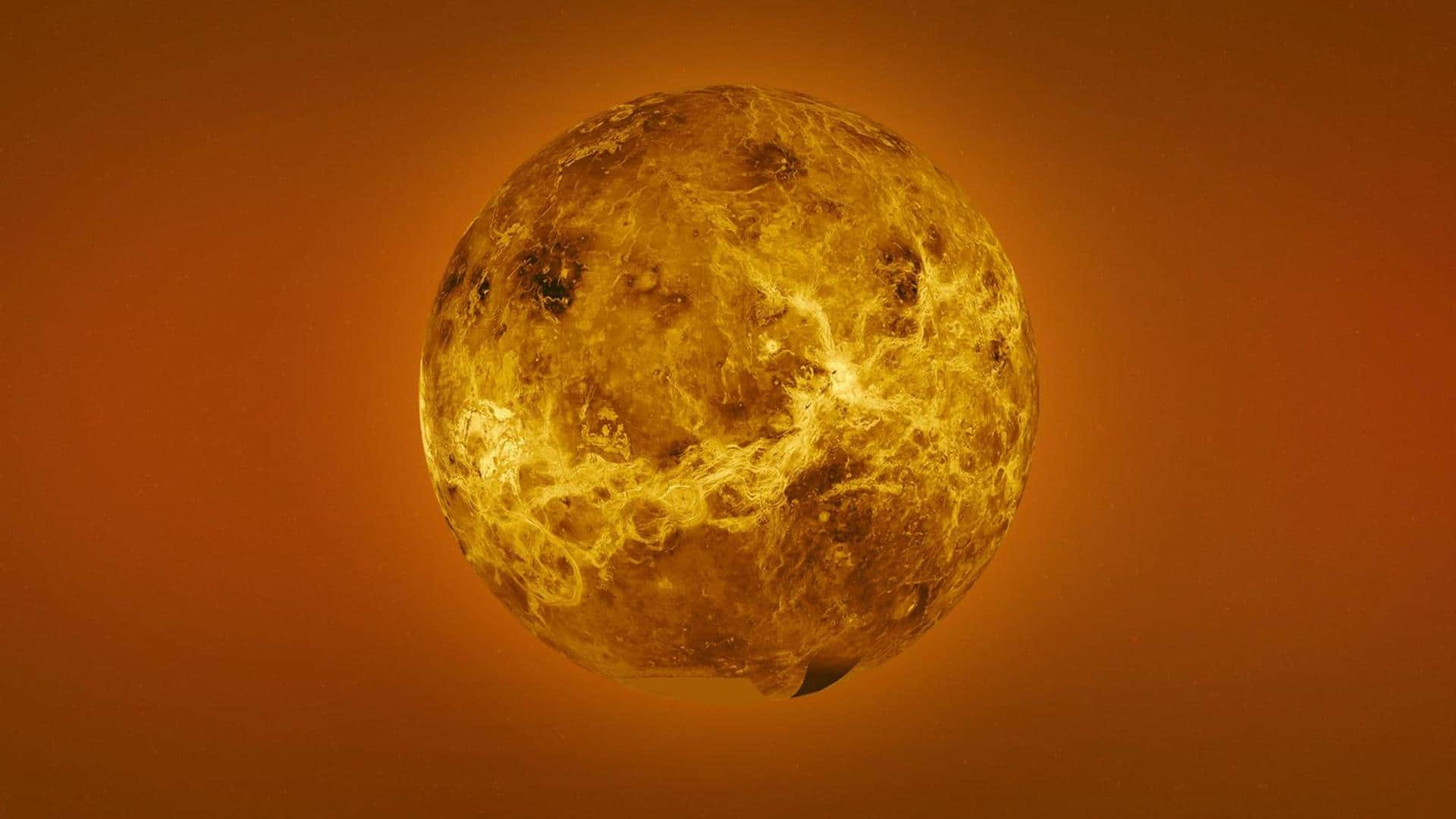
Volcanic eruptions altered climate of ancient Venus, says NASA
What's the story
Massive volcanic eruptions might have led to climate change on Venus, a new study by NASA has claimed.
The volcanic activity that lasted thousands of years could have transformed the "temperate and wet world" into an "acidic hothouse."
Venus has an average surface temperature of 462.2 degrees Celsius and an atmosphere 90 times the surface pressure of our planet.
Context
Why does this story matter?
The surface of Venus is so hot that it can even melt lead.
It is estimated that 80% of Venus' surface is covered by large fields of solidified volcanic rocks.
Although scientists are unsure about the exact order of events that could have birthed these rocky fields, they have turned to studying Earth's conditions to get a better idea.
Official words
'Venus has enough molten rock to bury Texas'
"Large igneous provinces are the products of periods of large-scale volcanism lasting tens of thousands or even hundreds of thousands of years," NASA explained in its blog.
"They can deposit more than 100,000 cubic miles of volcanic rock onto the surface. At the upper end, this could be enough molten rock to bury the entire state of Texas half a mile deep."
Probability
The volcanic outbursts occurred within a million-year time span
According to the study, massive volcanic eruptions could have contributed to the transformation of Venusian conditions from "wet and temperate to hot and dry."
Several of these bursts might have taken place within a short span of geological time, maybe a million years.
This could have led to a runaway greenhouse effect which caused the planet to become a fiery hell.
Definition
What is runaway greenhouse effect?
The runaway greenhouse effect occurs when a planet absorbs more energy from the Sun than it can radiate back to space.
It is claimed that a few billion years ago, the atmosphere of Venus contained high levels of carbon dioxide, a heat-trapping or greenhouse gas.
As a result of the trapped heat, the oceans on Venus evaporated, causing it to become a dry planet.
History
Earth has seen at least five major extinction events
Coming to our Earth, at least five major mass extinction events occurred since the inception of multicellular life, which happened 540 million years ago.
Each of these destructive events wiped out over 50% of animal life worldwide at that time.
Scientists have not completely understood why climatic changes resulting from these events did not cause a runaway greenhouse effect like Venus and destroyed everything.
Future
NASA will undertake 2 Venusian missions by 2030
By the end of this decade, NASA is planning to launch two Venusian missions - Deep Atmosphere Venus Investigation of Noble gases, Chemistry, and Imaging (DAVINCI) and Venus Emissivity, Radio Science, InSAR, Topography, And Spectroscopy (VERITAS).
The DAVINCI project will precede VERITAS. These missions will help scientists understand how Venus underwent a climate transformation.